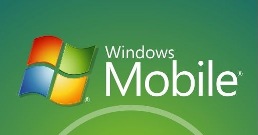Will Microsoft's limiting of devices allow them to react faster in the mobile space?


There are pros and cons with the current Windows Mobile environment. With around 140 current devices running the operating system the end user has a vast choice of what size, form factor, and price they want for their selected mobile phone. This vast number also makes it virtually impossible for Microsoft to even consider offering upgrades across the board. I think the current landscape also makes it difficult for Microsoft to respond quicker to changes in the mobile space and with the iPhone, Android, S60, and Palm WebOS improvements coming in 2009 Microsoft needs to get going sooner rather than later. I think BlackBerry as an OS is quite stale like Windows Mobile and their saving grace is the previous adoption by the enterprise. Steve Ballmer is giving a keynote at Mobile World Congress next month where he will be talking about the future of Windows Mobile so stay tuned for that.
Unlike Larry Dignan, I don't feel sorry for anyone running Windows Mobile because I think it is still a solid operating system that has a lot to offer. Thankfully, companies like HTC and Samsung have stepped up to improve the user experience on the platform, but I am starting to think Windows Mobile is becoming more of an operating system for those who like to dive into the details and tweak things to their heart's desire (the mobile geek). With help from sites like XDA Developers you can do quite a bit to optimize and customize your device where the more popular devices today are quite locked down and limited. However, this need for tweaking to get your device to perform how you want isn't something the general public or mass consumer wants or needs in a phone and should not be expected of them.
There has been some debate about whether or not Microsoft should move to a model similar to the iPhone where Microsoft controls Windows Mobile closely. They could do something like they have with the Zune or Xbox 360 and make the Microsoft Phone with the aquisition of someone like HTC. Honestly, I do not think this will happen at this time, but may be something they have to consider in the future if their present plans for the future don't work out as intended.
I personally think that Microsoft could have easily been the leader in the mobile space and generated excitement like the iPhone is garnering if they would have offered a solid out-of-the box hosted Exchange service for consumers (just like RIM does), had a single on-device application store (they have tens of thousands of developers with a ton of 3rd party applications), offered a fun user experience (like how HTC and Samsung do with devices or even how Spb Mobile Shell can do with software), and not thought of the phone as a Windows computer with a Start menu. Adding these types of things now will be seen as "doing what the iPhone already does" and may just not generate the enthusiasm for the platform that is needed to compete today.
The mobile space is indeed huge and growing so I do think there is room for all the players (S60, RIM, Apple, Nokia, Google, Palm, and Microsoft) and I honestly do not think one or two companies will knock everyone else out for at least the next few years. I do think the Microsoft needs to figure out how to respond faster and think ahead and implement faster in the future and with all of their money I have to say I still do not quite understand why it takes them so long to roll out updates. Hopefully, by narrowing their focus they are able to act quicker in the future.